In today’s technology-driven world, science education is particularly important. Pao School has long focused on cultivating students’ scientific acumen by helping students master a wide range of scientific knowledge, alongside encouraging them to keep pace with the times and understand cutting-edge technology. Through this, the school nurtures the skills fundamental to laying a solid foundation for further scientific study.
Science and technology education is integral to all three of Pao School’s campuses. This year the Primary School hosted the school’s first STEAM fair, organized by ICT teacher Wilson Scott. After several months of hard work, the students presented their projects to parents, teachers and fellow students at the fair to compete for a series of prizes. From robots, to recycled material carousels, to video games, to a smart pencil sharpener, the students’ innovative spirit was on display.
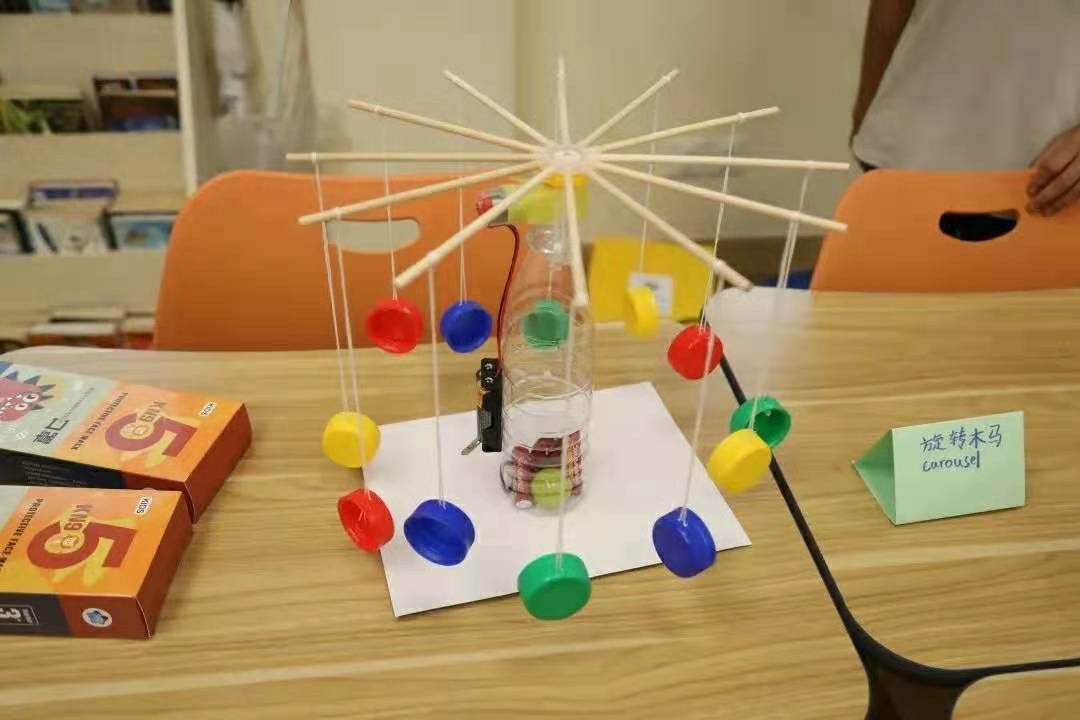
Year 3 Roy won the Eco Award for his mini-furniture and carousel project made of recycled materials
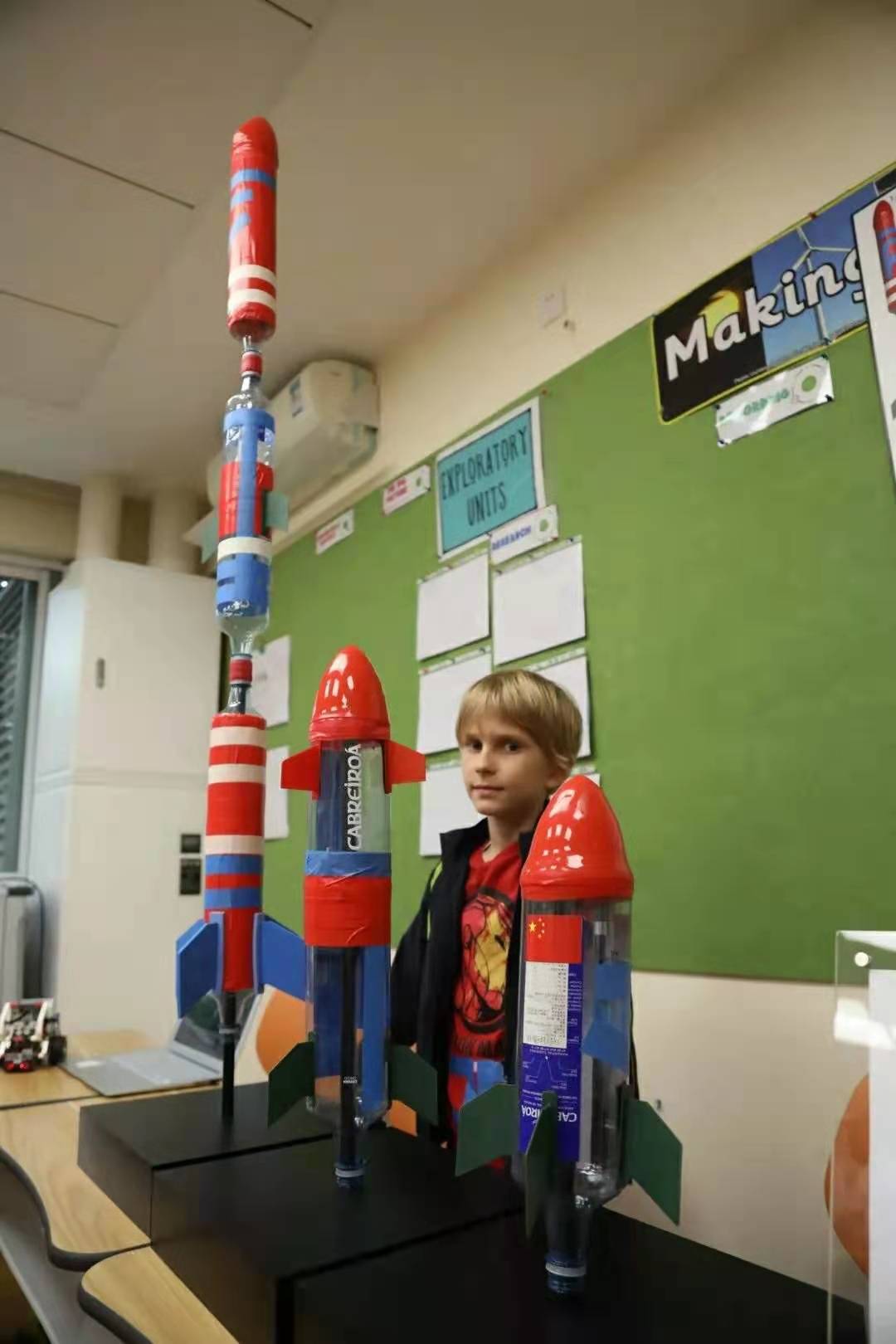
Year 3 Jackson’s Bottle Rocket Project won the STEAM Fair Project Award
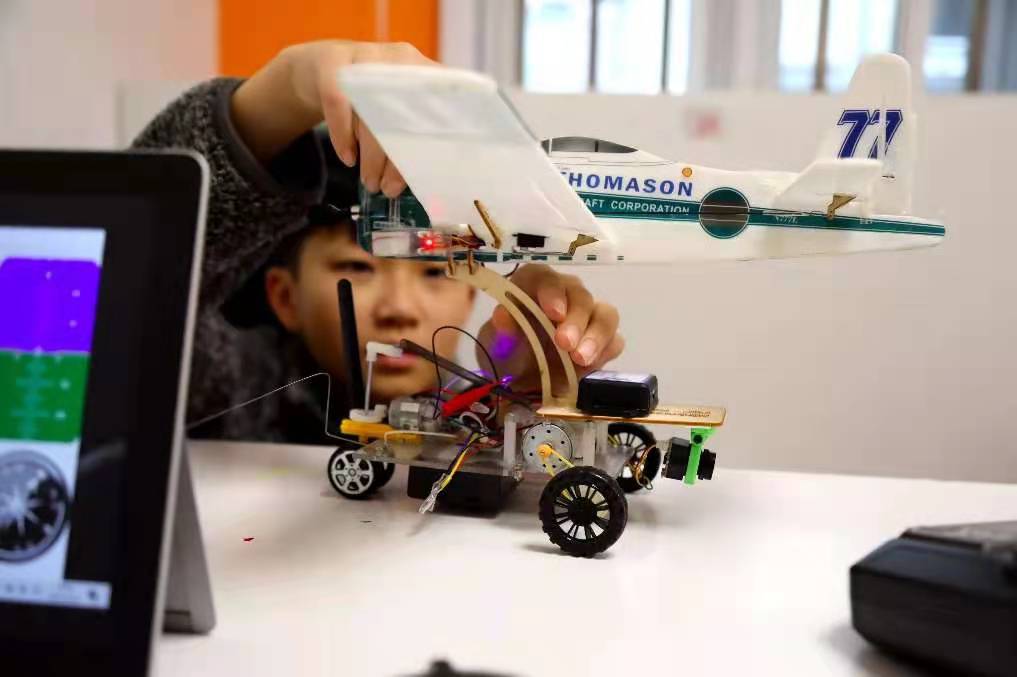
Year 5 Matthew won the Innovation Award for his Plane Drone project. He built the plane by using a mini micro:bit and coding app
In the Middle School, Mrs Weng’s physics students learned key physics concepts (such as pressure, density, buoyancy, friction, Newton’s Third Law of Motion and Archimedes’ principle) using project-based learning. Mrs Weng divided the students into groups, each of which built a model of an amphibious bicycle to test its density, buoyancy and gravity. Once the students had collected the data, they used it to develop a detailed project plan. The plan included an introduction, design concept, model design, feasibility analysis, project budget, and references.
Of course, due to its hands-on nature, such project-based learning demands more of teachers than traditional teaching methods. Teachers must have a particularly in-depth understanding of all teaching content and spend a significant amount of time supervising the children’s learning. Teachers must also develop detailed evaluation standards. Finally, the teacher must ensure each student completes their thesis and provide support as needed.
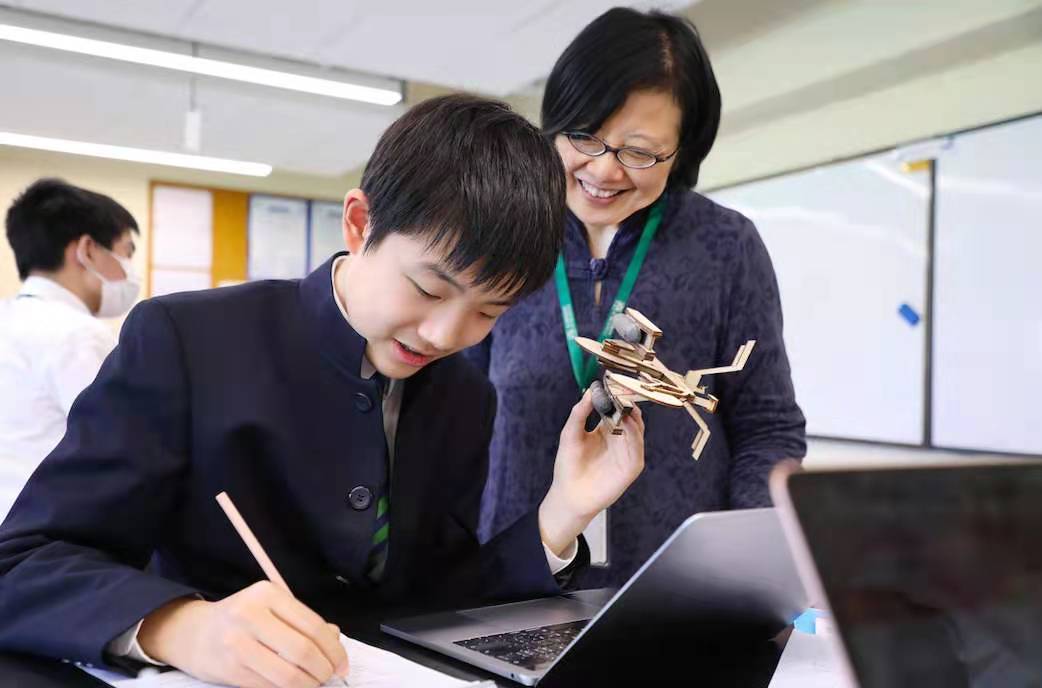
Learning about amphibious bicycles
The High School’s Science Department recently signed a strategic partnership agreement with Shanghai Chenshan Botanical Garden, which will facilitate cooperation in personnel training, research and other areas. The project will be fully launched at the beginning of the 2021-22 academic year, and will be beneficial to both teachers and students of biology and related subjects.
Two of the High School’s initiatives with external partners particularly stand out. One is the "Scientists on Campus" project co-organised with the Shanghai Women Scientists Association. The second is with the Bernard L. Feringa Nobel Scientists Joint Research Centre, which provides students with activities such as science education lectures and professional-level co-curricular classes.
Activities such “Scientists on Campus” or the cooperation with the Nobel Prize Centre have the same purpose: to enrich science education for Pao School students in a comprehensive manner. By participating in these activities, students can expand their scientific knowledge in important ways. One way is by meeting leading contemporary scientists in person and talking with them. Such experiences stimulate students’ interest in science, help them to improve their scientific thinking, and lay a solid foundation for their future scientific studies.
——Susie Li
High School Science Teacher
Scientists on Campus
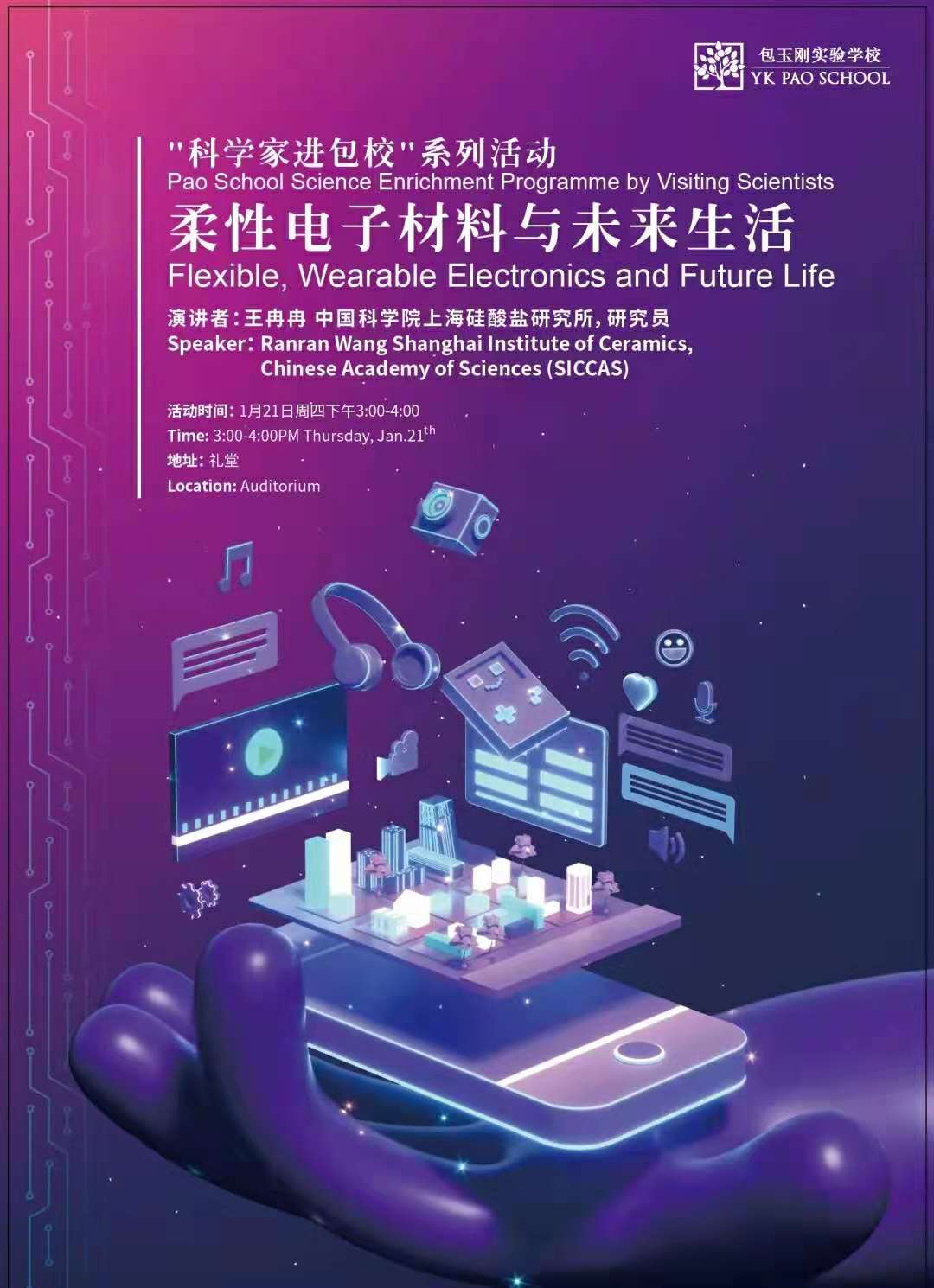
At the beginning of the year, the High School Science Department launched a series of activities themed “Scientists on Campus.” The project was guided by Madam Han Hua, former deputy dean of the Shanghai Academy of Science and Technology, a Pao School science consultant, and vice chairman of the Shanghai Women’s Scientists Association. This year’s activities focused on physics, going beyond lectures to include promotion of popular science knowledge and visits to research institutes. This allowed students to learn about China’s advanced technology from different perspectives and cultivate their interest in the nation’s future scientific and technological development.
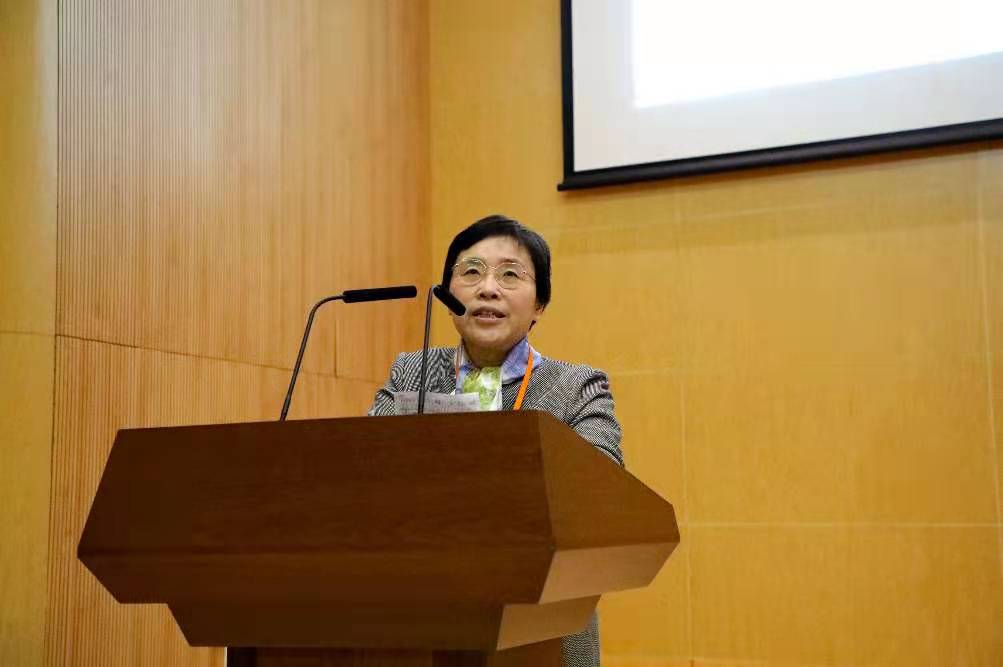
Madam Han making the speech
During the project’s kick-off in January, Madam Han encouraged Pao School students to cultivate their scientific and innovative capabilities. She noted that the school has become well known both in China and overseas in recent years, while its people-centered environment and educational philosophy are unique in Shanghai. She added that she hoped that the series of lectures supported by the Shanghai Women Scientists Association will help enhance students knowledge of popular science, and that interactions with front-line scientists and technologists will help refine popular science education.
Dr. Wang Ranran, a scholar based at the Shanghai Institute of Ceramics of the Chinese Academy of Sciences, was the first speaker in the series of lectures. Dr. Wang's lecture, entitled "Flexible Wearable Electronics and Future Life," combined science fiction with facts about the development of technology in everyday life. Dr. Wang introduced flexible wearable electronics to Year 9 students in a simple and clear manner, covering the current market situation, applications for the products, constraints on their development and future market trends.
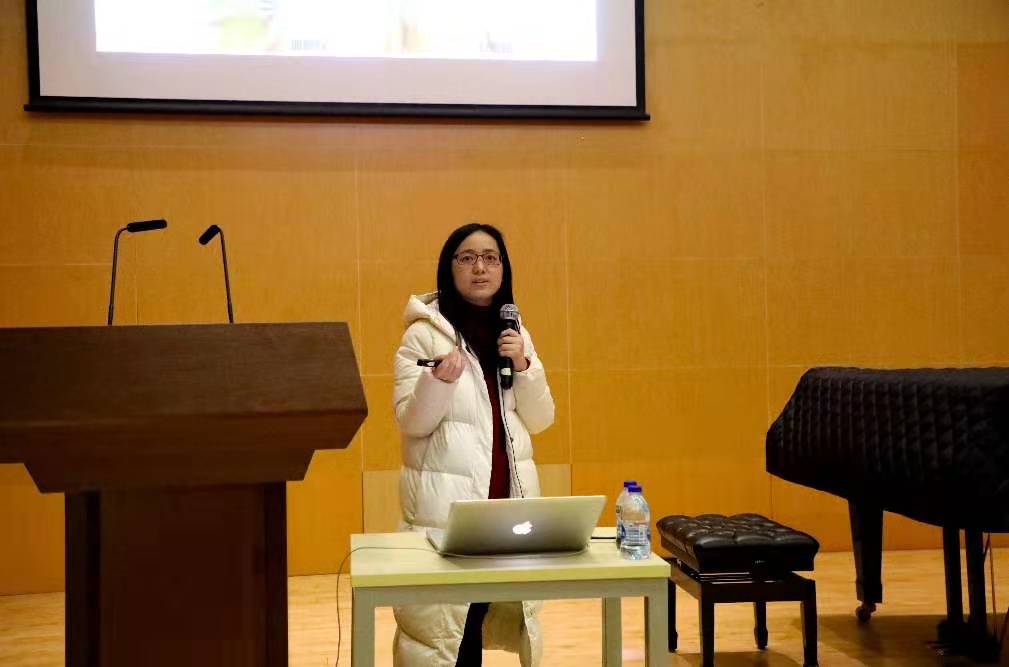
Dr. Wang's lecture, entitled "Flexible Wearable Electronics and Future Life"
In June, Dr. Zhang Lingling, deputy chief engineer of the Shanghai Institute of Laser Technology and director of the Shanghai Engineering Research Centre of Laser Direct Part Marking Traceability used lively language to lead students to learn all about lasers and the technology that powers them. The campus also hosted an exhibit focusing on laser technology, providing students with an opportunity to deepen their knowledge of the subject.
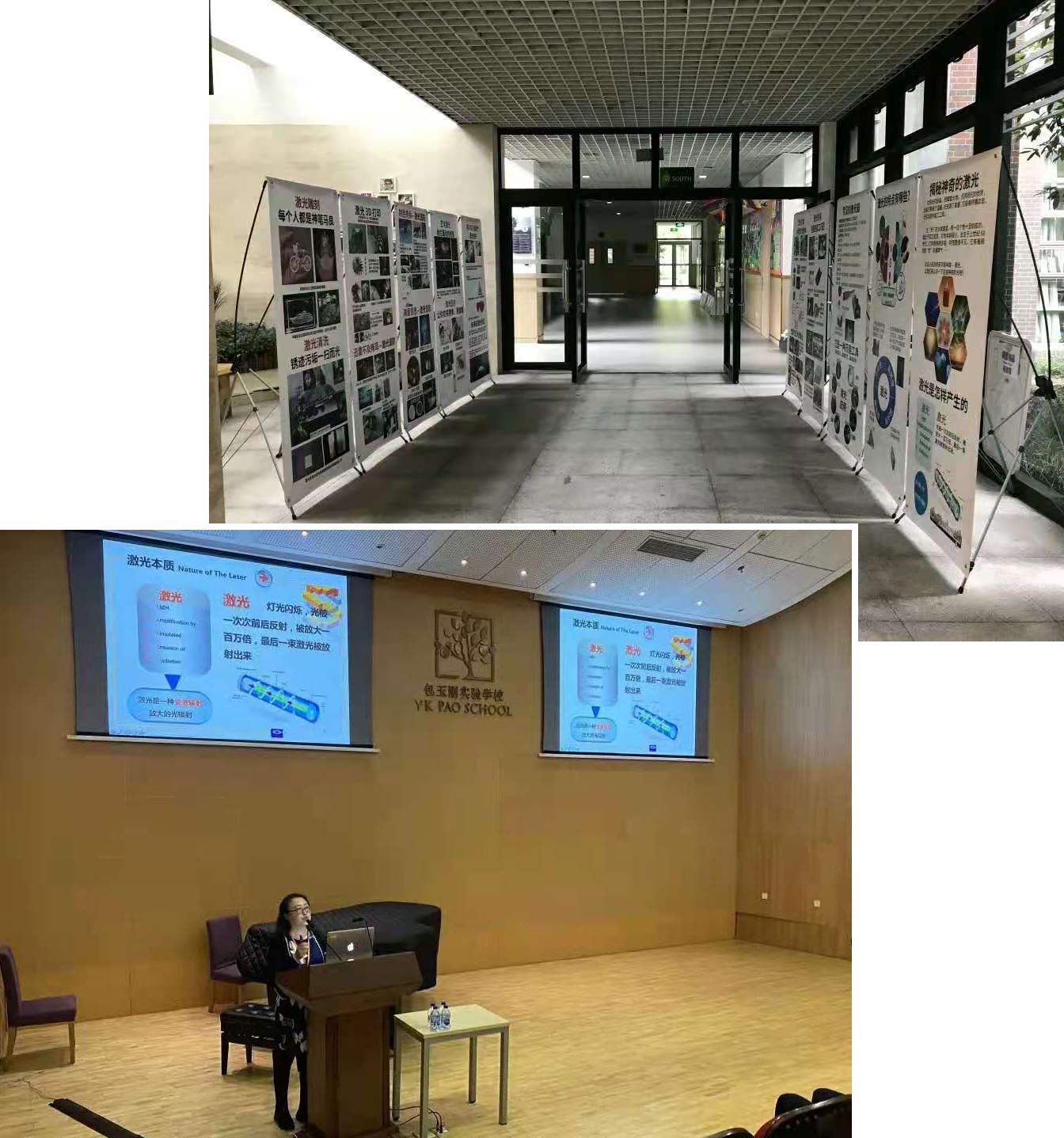
Dr. Zhang's lecture on Laser Technology
Feringa Nobel Prize Scientists Joint Research Centre Programme
This year, the High School Science Department and the Bernard L. Feringa Nobel Prize Scientists Joint Research Centre jointly launched the Feringa-Pao School Young Elite Chemist Programme. Professor Mei from the Nobel Prize Centre drew on the center’s research expertise and Pao School’s chemistry curriculum to design a series of extended courses, which were held during CCA time.
During the first lesson, Professor Mei introduced the Feringa Nobel Prize Research Centre’s work in the field of precision chemistry and molecular engineering. In addition, she introduced the centre’s important breakthrough in precision controllable smart materials and precision probes used in the early detection of malignant tumors and Alzheimer’s disease. Professor Mei’s lecture helped provide students with a deeper understanding of the frontiers of scientific research and the link between scientific theories and experimentation.
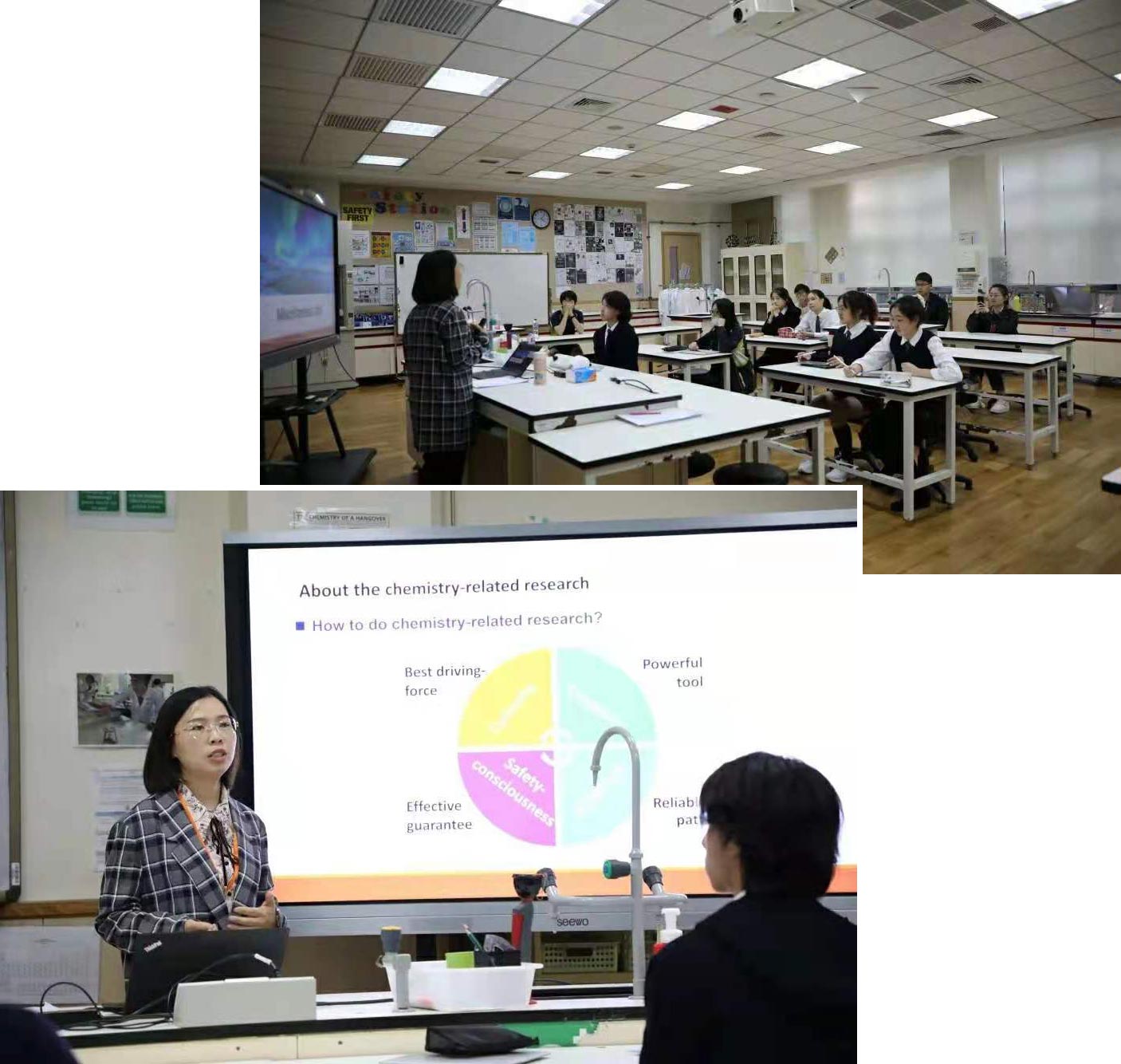
Professor Mei with Students
These activities introduced Mary and Sophie (Y9) to concepts that were totally new to them, including the application of thermochromic materials and the scientific mechanism behind them. At the same time, “the many experiments we conducted in class helped us understand these challenging concepts that had previously been so unfamiliar to us, and deepened our interest in chemistry and desire to learn about it.”
Sissi (Y9) commented: “I am now more interested in chemistry and confident studying it. Through all of these experiments, I have been exposed to many metal complexes for the first time, learned about thermochromic reaction, and connected it with the knowledge of reversible reactions we learned in the classroom. It is also the first time I have come into contact with vacuum filtration devices and magnetic stirrers.”
Participating in the Feringa Programme gave the students a deeper understanding of the subject of chemistry, enhancing what they had already learned in their regular coursework.
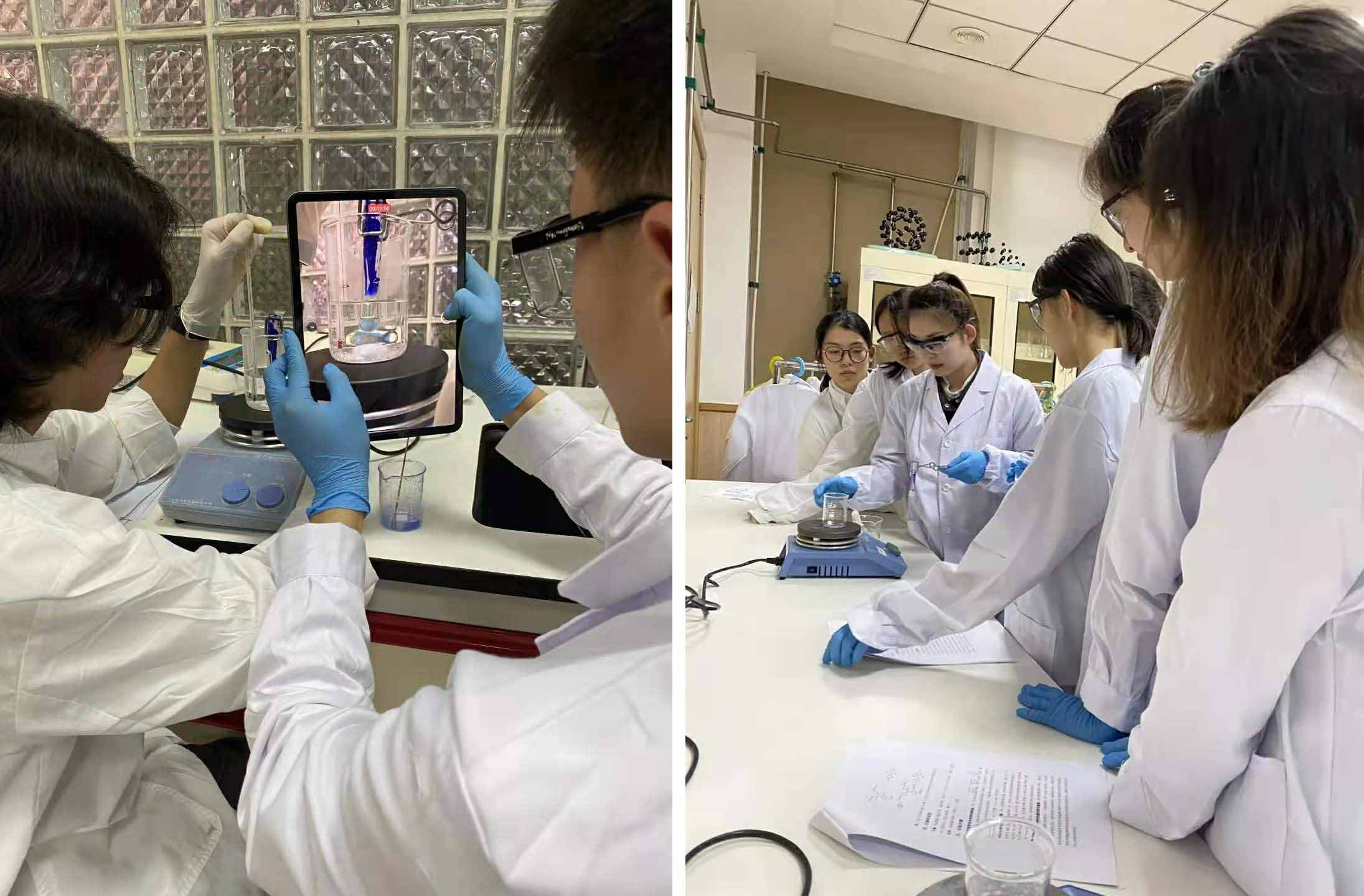
Feringa Programme
A journey of a thousand miles begins with a single step. I hope the students of Pao School will become ambitious from a young age. When they take a deep, enduring and active interest in science, it will lay a solid foundation of knowledge and skills that will serve them well in their studies at Pao School and in their future lives.
——Madam Han Hua